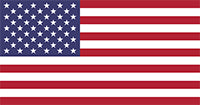How to Spot a Fake: Face Masks
Early in the pandemic, the U.S. faced a mask shortage. Whether it was N95s for medical use, or protective masks for personal use. Cloth masks popped up everywhere, but as we found out, they weren’t as effective at preventing the spread of Covid-19 as masks with high filtration materials. Why? The majority of the materials for N95 masks, as well as the masks themselves, are manufactured internationally, and materials and masks in the U.S. remain in short supply to this day. So, it didn’t come as a surprise when news of counterfeit masks began making headlines in the summer of 2020.
Counterfeit masks are available in excess for many reasons, including the unprecedented demand and lack of supply. Just how excessive is their availability? As of February 2021, Homeland Security Investigations estimated that 10 million counterfeit masks and other medical supplies had been seized by law enforcement. And that’s just what has been identified!
There are several ways to spot fake masks. Early in 2021, the ASTM standards came out with a way to measure the effectiveness of non-medical masks through the ASTM F3502 standard. Much like choosing your suntan lotion by SPF, this guideline seeks to let users understand exactly what they are getting with filtration and breathability for the mask they purchase.
As we will continue wearing face masks throughout vaccine rollouts and beyond, it’s important to be able to identify a face mask that is verified to keep you, and those around you, safe.
Here’s how:
Identifying counterfeit non-medical masks
If you are purchasing a mask for work or school, it is important that it not only protects others, but that it is comfortable to wear throughout the day. Cloth masks may be breathable and comfortable, but they have been shown to filter less than 40% of particulates in the air. And the medical masks available for non-medical use are highly protective but may not be comfortable to wear throughout the day.
A mask that is compliant with the ASTM F3502 standard is going to be both high in filtration and breathable to wear throughout the day. To identify whether a mask is ASTM F3503 compliant, Look for the following:
- Test results from an independent, accredited laboratory (for example from Intertek or Nelson Labs)
- The mask itself is labeled. At a minimum, the label must include:
- the manufacturer’s name, identification, designation, or logo
- the barrier face covering model or style and
- the statement “Meets ASTM F3502.”
- Additionally, the following warning must be printed on the smallest saleable unit/package and must be viewable in its entirety:
- MEETS ASTM F3502, SPECIFICATION FOR BARRIER FACE COVERINGS. THIS PRODUCT IS PRIMARILY INTENDED AS A MEANS OF SOURCE CONTROL FOR MINIMIZING THE PROJECTION OF EXPELLED MATERIALS FROM THE WEARER’S NOSE AND MOUTH. WARNING: THIS BARRIER FACE COVERING IS NOT A MEDICAL FACE MASK AS DEFINED IN ASTM F2100, IS NOT INTENDED FOR USE IN MEDICAL PROCEDURES, AND IS NOT A RESPIRATOR.
- NOTE: ASTM does not “certify”, so if you come across one of the many sites that claims ASTM Certification, you know for sure you are not buying an ASTM compliant mask.
Without the above requirements, you are not buying a mask for general use that meets the standards for BOTH Filtration and Breathability.
In addition, the market has been flooded with counterfeits for medical masks-both N95 respirators and KN95 non-medical masks. Here are some tips to identify these masks.
Identifying counterfeit N95s

The National Institute for Occupational Safety and Health (NIOSH) is the federal agency responsible for conducting research and making recommendations to prevent workplace injuries and illnesses within the Centers for Disease Control and Prevention (CDC). NIOSH-approved face masks (defined as “respirators”) that meet N95 classification standards have a variety of markings to indicate authenticity. The absence of those markings is one clue as to whether a mask is counterfeit or the real thing. Counterfeit masks often have:
- No markings at all on the face mask
- No approval (TC) number on filtering facepiece respirator
- No NIOSH markings
- NIOSH spelled incorrectly
- Presence of decorative fabric or add-ons (e.g., sequins)
- Claims for approved use by children
- Filtering facepiece respirator that has ear loops instead of headbands
Educate Yourself on Additional Mask Standards
The majority of us do not need to wear N95 masks under normal circumstances, not only because of scarcity but also because of the impact that high filtration has on breathability (check out our blog on filtration and breathability for more information). There are a wide variety of face mask options that are safe.
ASTM International, an global standards organization that develops and publishes voluntary consensus technical standards, recently published F3502, a barrier face covering standard for general-use masks. This marks the first voluntary standard directed at face coverings and is intended to apply to the general public and workers. To determine if a mask meets these standards, the mask must undergo testing by independent third-party companies, which means you can be confident that the mask will keep the wearer and those around them safe. Products that meet the standard are labeled as “MEETS ASTM F3502.”
Research marketing claims that boast of certification.
For instance, it’s not possible to be “ASTM-certified.” Manufacturers can only claim to meet the ASTM standard through third-party testing, which is when they can label the mask as “MEETS ASTM F3502.”
Look for Face Masks Made in the U.S.
The majority of counterfeit masks that we see in the United States come from other countries. Additionally, face masks made and manufactured in the U.S. can ease the supply chain bottlenecks that personal protective equipment (PPE) manufacturers are facing internationally, ensuring a consistent supply of materials. Plus, buying a U.S.-made mask supports local jobs!
Want to learn about a novel face mask that meets ASTM F3502 and is made in the U.S.? Contact us today.
 100% Made in America
100% Made in America 